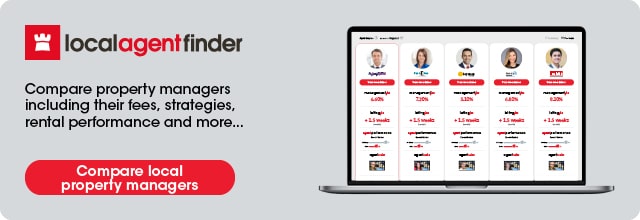Making the decision whether or not to rent out your property can be daunting. Whether it’s an investment property or a property you have lived in and vacated, you’ll want to ensure that you protect both yourself and your property whilst getting the best possible return.
A property manager’s role
A property manager’s role is not just to collect the rent. They provide a comprehensive management service, which means they:
- Provide advice on rental value
- Advertise for tenants
- Screen tenants and lease the property
- Provide a tenancy agreement
- Collect and lodge the bond
- Collect the rent
- Compare and check property inventory
- Inspect the property
- Pay utility accounts
- Provide regular financial statements
- Attend court on your behalf in the case of dispute with tenants
- At the end of the tenancy, finalise the bond and inventory with the tenant
This, of course, comes at a fee – sometimes up to 10% of the weekly rental figure as well as a letting fee for finding a tenant for your property.
A survey of investors by Woolcott Research found that two out of five of the self-managing landlords interviewed had experienced tenants defaulting on rent. It also found that landlords who used property managers to manage their relationships with tenants were likely to face fewer problems.
Appoint a property manager
When you do decide to hire a property manager, the selection process is similar to an interview. Making sure to ask the right questions will help you to compare different services offered by competing agencies, and will ensure you are informed about their role.
Make sure you have landlord insurance
Renting out your property involves big financial risk. If you’ve previously called the property “home”, you may also have an emotional attachment.
No doubt, you’ve heard horror stories about nightmare tenants. Of course, most tenants don’t fall into that category, but it pays to protect yourself and your property in the event that something goes wrong. If this is your first time renting property, you may not know about landlord insurance. It’s designed to cover the aspects of renting your property that building & contents insurance generally don’t allow for.
The common features covered in landlord insurance are:
- Malicious or intentional damage to the property by their tenant or their guests
- Theft by the tenant or their guests
- Loss of rent if the tenant defaults on their payment
- Liability, including claims against you by the tenant
- Legal expenses incurred in taking action against a tenant
It’s important to remember that not all landlord insurance policies are the same. Your property manager will have one that they recommend, or you can do your own research to find the right policy for you.
Speak to your accountant about tax issues
Renting out a property is likely to have tax implications. Make sure to advise your accountant of your intentions and to discuss the possibility of getting a depreciation schedule organised (if you don’t already have one).
Work with your property manager to decide on the rent
You might have an idea of how much rent you would like to receive, based on what your ownership costs are, but unfortunately rents are determined by the local market. Your property manager will be best suited to advise you on this. Don’t just take their word for it though – you can do your own research on the online listings websites (such as realestate.com.au and domain.com.au) and search for similar suburbs and properties to your own to compare.
During your interview process with potential property managers, they should be able to provide with you a list of their most recent successful rentals that are comparative to your property. Always remember to be realistic about what you can obtain.
Decide on a marketing plan with your property manager
One of the most important ways your property manager can help you to rent your property is by marketing it to prospective renters. Only real estate agents are permitted to list rental properties on the most popular online real estate portals – realestate.com.au and domain.com.au.
To ensure the best results, compare your property’s online listing with those of similar properties in the same area. Check the following four key factors:
- Has your agent included several good photos in the online advertisement?
- Did they have the property cleaned and the garden mowed before taking the photos?
- Is advertising copy (the written description of the property) compelling?
- Are they properly screening applicants against a national tenancy database, and also checking credit, employment, references and criminal history?
Rent your property out!
Now that you have completed these steps, you are ready to rent your property out, safe in the knowledge that you have made an informed choice selecting your property manager.
